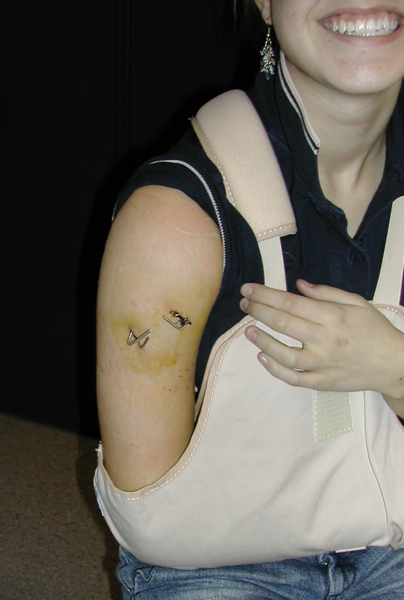The Best Source for English-Language Books in Italy
Enrico and I read a lot (Rossella, alas, does not). Our house is stuffed with books, many of which we have read several times over – if I don’t expect to want to read a particular book ever again, I give it away.
Obtaining books was a problem when we first moved to Italy. I do read in Italian, but prefer to read books in their original language when I can. The exception is mysteries, which I read in Italian because my mother-in-law has a huge collection, and I consider it a waste to buy them since I will read most of them only once.
There is one mid-sized foreign-language bookstore in Milan, but it’s expensive, as all the books are imported. So I had to depend on trips to the US or England, from which I would return loaded with books. I learned a little-known secret of the US postal service, the M bag: you pack up books in boxes and they stuff the boxes into a big canvas bag, which can be shipped surface mail for a special low rate. It’s so little-known that, in some post offices, I had to explain it to the counter clerk.
I first heard about Amazon around 1995. “An online bookstore? What a fantastic idea!” But sending books all the way from the US was a problem. I tried every option. FedEx was tremendously expensive, and airmail not much cheaper. Surface mail was tremendously slow. But I had to feed my book habit.
I was saved by the opening of Amazon UK. Packages can be sent fairly cheaply by ordinary British Royal Mail, and arrive within days. I was worried at first that non-couriered packages would simply disappear into the maw of the Italian postal service, as so many packages do. But Amazon was prepared to deal with that. The first time it happened, I emailed customer service, and a replacement package was sent immediately, this time by courier, for no extra charge. I became a fanatically loyal customer at that moment. The original package never did turn up; Amazon didn’t mind.
Later, I wrote to them when a large and expensive shipment of books (computer stuff) had not arrived after three weeks. “This could be the usual summer slowdown, so I’m willing to wait longer,” I said. They sent a replacement anyway and, sure enough, the original package arrived a few days after the replacement. “What should I do with these duplicate copies?” I asked. “Donate them to a school,” said Amazon, so I took them to Woodstock on my next visit.
This has happened several more times, but I’ve only been asked to send back DVDs. Books and DVDs that have gone permanently missing have been replaced without a murmur. The most recent example is the Firefly DVD set, which I ordered from Amazon US as soon as it was released, December 9th, along with a book for my Woodstock history research. I chose ordinary airmail – much cheaper than courier. The two items were shipped separately, the DVDs a few days earlier than the book. The book arrived on Dec 22nd, the DVDs still haven’t shown up. On December 30th I wrote to Amazon, again saying that I was willing to wait a bit longer and see if it had simply got lost in the holiday rush. Within two hours, I had a response: they were sending replacement DVDs. Now that’s customer service.
I wish other companies worked as well. Lands’ End opened a UK branch a few years ago, great news for me as I depend on them for turtlenecks and fleece jackets. (I hate shopping. Once I find something I like, I stick to it forever.) The prices were high: they decided that a 10-dollar item would cost 10 pounds, when the pound was actually worth about 30% more (now that the dollar has devalued further against the pound, there has finally been some price adjustment). But they have an overstocks section on the UK site, so I can often pick up items I like very cheaply. Sometimes I save on shipping by having things mailed to my dad’s house in the UK when I’m going there on a visit (which also means I can bring less clothing with me).
So, before my October visit to my dad, I browsed the overstocks section and picked out ten turtlenecks, each of them under 6 pounds. When the package arrived, it contained 11 items – one was a duplicate that I had not been charged for. I could have just kept it, but, scrupulously honest creature that I am, I decided to let them know what had happened. I emailed customer service, fully expecting them to say: “Just keep it, thanks for letting us know.” They didn’t. They wanted it back, which would involve a trip to the post office, although they offered to refund the postage. This for an item from their overstock section that cost about 5 pounds. Sheesh. Get a clue from Amazon, folks.
Feb 2, 2004
The lost Firefly DVDs turned up, almost two months after the original order was placed. I wrote to Amazon to ask what they wanted me to do. “As the cost of return shipping is prohibitively expensive in this case, we ask that you keep the duplicate order with our compliments. Perhaps you can donate it to a school or library in your area.”
As you have probably noticed, I am also an Amazon “associate”, meaning that, if you click from my site to Amazon and end up buying something, I get a percentage. In the third quarter of last year I finally made enough money this way to actually get a gift certificate: $18. Thanks to those who you who clicked through and bought!







